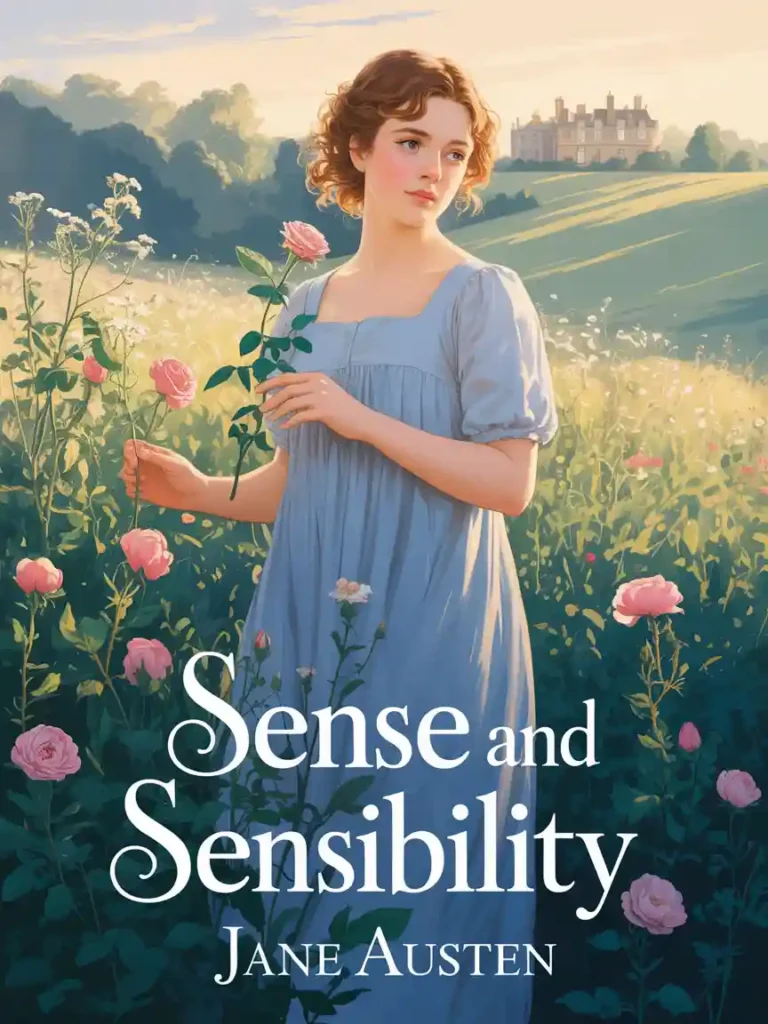CHAPTER VII.
Barton Park was about half a mile from the cottage. The ladies had
passed near it in their way along the valley, but it was screened from their
view at home by the projection of a hill. The house was large and
handsome; and the Middletons lived in a style of equal hospitality and
elegance. The former was for Sir John’s gratification, the latter for that of
his lady. They were scarcely ever without some friends staying with them in
the house, and they kept more company of every kind than any other family
in the neighbourhood. It was necessary to the happiness of both; for
however dissimilar in temper and outward behaviour, they strongly
resembled each other in that total want of talent and taste which confined
their employments, unconnected with such as society produced, within a
very narrow compass. Sir John was a sportsman, Lady Middleton a mother.
He hunted and shot, and she humoured her children; and these were their
only resources. Lady Middleton had the advantage of being able to spoil her
children all the year round, while Sir John’s independent employments were
in existence only half the time. Continual engagements at home and abroad,
however, supplied all the deficiencies of nature and education; supported
the good spirits of Sir John, and gave exercise to the good breeding of his
wife.
Lady Middleton piqued herself upon the elegance of her table, and of all
her domestic arrangements; and from this kind of vanity was her greatest
enjoyment in any of their parties. But Sir John’s satisfaction in society was
much more real; he delighted in collecting about him more young people
than his house would hold, and the noisier they were the better was he
pleased. He was a blessing to all the juvenile part of the neighbourhood, for
in summer he was for ever forming parties to eat cold ham and chicken out
of doors, and in winter his private balls were numerous enough for any
young lady who was not suffering under the unsatiable appetite of fifteen.
The arrival of a new family in the country was always a matter of joy to
him, and in every point of view he was charmed with the inhabitants he had
now procured for his cottage at Barton. The Miss Dashwoods were young,
pretty, and unaffected. It was enough to secure his good opinion; for to be
unaffected was all that a pretty girl could want to make her mind as
captivating as her person. The friendliness of his disposition made him
happy in accommodating those, whose situation might be considered, in
comparison with the past, as unfortunate. In showing kindness to his
cousins therefore he had the real satisfaction of a good heart; and in settling
a family of females only in his cottage, he had all the satisfaction of a
sportsman; for a sportsman, though he esteems only those of his sex who
are sportsmen likewise, is not often desirous of encouraging their taste by
admitting them to a residence within his own manor.
Mrs. Dashwood and her daughters were met at the door of the house by
Sir John, who welcomed them to Barton Park with unaffected sincerity; and
as he attended them to the drawing room repeated to the young ladies the
concern which the same subject had drawn from him the day before, at
being unable to get any smart young men to meet them. They would see, he
said, only one gentleman there besides himself; a particular friend who was
staying at the park, but who was neither very young nor very gay. He hoped
they would all excuse the smallness of the party, and could assure them it
should never happen so again. He had been to several families that morning
in hopes of procuring some addition to their number, but it was moonlight
and every body was full of engagements.
Luckily Lady Middleton’s mother had arrived at Barton within the last
hour, and as she was a very cheerful agreeable woman, he hoped the young
ladies would not find it so very dull as they might imagine. The young
ladies, as well as their mother, were perfectly satisfied with having two
entire strangers of the party, and wished for no more.
Mrs. Jennings, Lady Middleton’s mother, was a good-humoured, merry,
fat, elderly woman, who talked a great deal, seemed very happy, and rather
vulgar.
She was full of jokes and laughter, and before dinner was over had said
many witty things on the subject of lovers and husbands; hoped they had
not left their hearts behind them in Sussex, and pretended to see them blush
whether they did or not. Marianne was vexed at it for her sister’s sake, and
turned her eyes towards Elinor to see how she bore these attacks, with an
earnestness which gave Elinor far more pain than could arise from such
common-place raillery as Mrs. Jennings’s.
Colonel Brandon, the friend of Sir John, seemed no more adapted by
resemblance of manner to be his friend, than Lady Middleton was to be his
wife, or Mrs.
Jennings to be Lady Middleton’s mother. He was silent and grave. His
appearance however was not unpleasing, in spite of his being in the opinion
of Marianne and Margaret an absolute old bachelor, for he was on the
wrong side of five and thirty; but though his face was not handsome, his
countenance was sensible, and his address was particularly gentlemanlike.
There was nothing in any of the party which could recommend them as
companions to the Dashwoods; but the cold insipidity of Lady Middleton
was so particularly repulsive, that in comparison of it the gravity of Colonel
Brandon, and even the boisterous mirth of Sir John and his mother-in-law
was interesting. Lady Middleton seemed to be roused to enjoyment only by
the entrance of her four noisy children after dinner, who pulled her about,
tore her clothes, and put an end to every kind of discourse except what
related to themselves.
In the evening, as Marianne was discovered to be musical, she was
invited to play. The instrument was unlocked, every body prepared to be
charmed, and Marianne, who sang very well, at their request went through
the chief of the songs which Lady Middleton had brought into the family on
her marriage, and which perhaps had lain ever since in the same position on
the pianoforte, for her ladyship had celebrated that event by giving up
music, although by her mother’s account, she had played extremely well,
and by her own was very fond of it.
Marianne’s performance was highly applauded. Sir John was loud in his
admiration at the end of every song, and as loud in his conversation with the
others while every song lasted. Lady Middleton frequently called him to
order, wondered how any one’s attention could be diverted from music for a
moment, and asked Marianne to sing a particular song which Marianne had
just finished. Colonel Brandon alone, of all the party, heard her without
being in raptures. He paid her only the compliment of attention; and she felt
a respect for him on the occasion, which the others had reasonably forfeited
by their shameless want of taste. His pleasure in music, though it amounted
not to that ecstatic delight which alone could sympathize with her own, was
estimable when contrasted against the horrible insensibility of the others;
and she was reasonable enough to allow that a man of five and thirty might
well have outlived all acuteness of feeling and every exquisite power of
enjoyment. She was perfectly disposed to make every allowance for the
colonel’s advanced state of life which humanity required.





